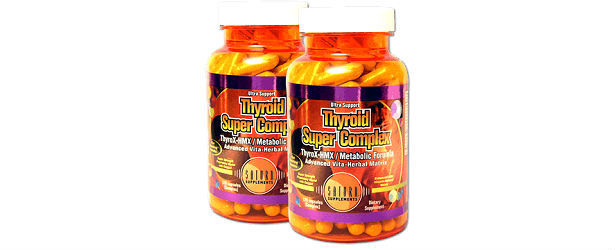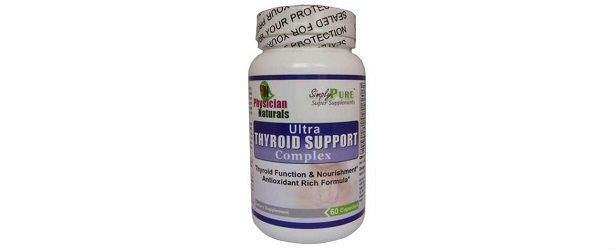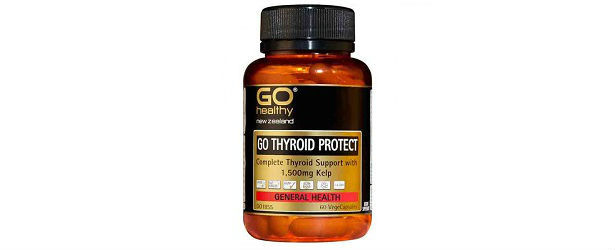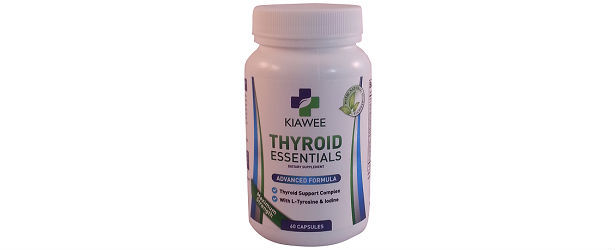
Hashimoto’s Thyroid Disease Diet
When your body produces antibodies that cause a disruption in the way your thyroid gland works it is called Hashimoto’s disorder. Another name for this autoimmune disorder is Hashimoto’s thyroiditis. In the case of this disease, the thyroid becomes underactive and inflamed which is called hypothyroidism. You can treat hypothyroidism with a therapy comprised of hormone replacement medication to prevent serious complications from arising. Some nutritional supplements may also help if you include them in your daily routine. There are also some foods you need to be aware of that might interfere with the medication you are given to help with your thyroid disease. If you are on medication, you should make every attempt to avoid them.
There are symptoms and signs for Hashimoto’s Disease
 Hashimoto’s disease can have a wide variety of symptoms that may include cold sensitivity, dry skin, fatigue, constipation, hoarseness, puffy face, hair loss, high cholesterol, memory loss, weight gain, irritability, joint aches, muscle aches, flaky nails, weakness, heavy periods, depression, and prolonged periods. If it remains untreated, Hashimoto’s disorder can cause goiter, meaning an enlargement of the thyroid gland, enlarged heart and even possibly heart failure, slowed mental capacity, severe depression,
Hashimoto’s disease can have a wide variety of symptoms that may include cold sensitivity, dry skin, fatigue, constipation, hoarseness, puffy face, hair loss, high cholesterol, memory loss, weight gain, irritability, joint aches, muscle aches, flaky nails, weakness, heavy periods, depression, and prolonged periods. If it remains untreated, Hashimoto’s disorder can cause goiter, meaning an enlargement of the thyroid gland, enlarged heart and even possibly heart failure, slowed mental capacity, severe depression,
Hashimoto’s Disease does have medication available
Levothyroxine is the drug that can easily treat the hypothyroidism that will result from Hashimoto’s disorder. This medication will replace thyroxine that is no longer produced by the thyroid gland. This medication also will work if your thyroid is producing thyroxine in an insufficient quantity. You will notice that you will start to feel healthy once you start taking the prescribed medication. Your doctor will recommend you get a blood test once every six to twelve months so you can make sure that your levels of thyroxine remain normal. You will probably need to remain on the medication forever.
There are supplements and food that may aid in the alleviation of your symptoms
 The U of M Medical Center suggests eating foods that are whole grain and have high amounts of iron and Vitamin B if you are diagnosed with Hashimoto’s disease. Try to include fresh vegetables and fruits along with other foods that contain antioxidants in your daily diet. Fish oil may also help to increase your immunity and possibly L-tyrosine supplements will help you create more of your own thyroid hormone. Some herbs may also be helpful such as guggul extract and coleus extract. These may be taken a couple times daily and has been known to help the activity of a low thyroid. Make sure you ask your physician before you try and of the herbal remedies or supplements recommended.
The U of M Medical Center suggests eating foods that are whole grain and have high amounts of iron and Vitamin B if you are diagnosed with Hashimoto’s disease. Try to include fresh vegetables and fruits along with other foods that contain antioxidants in your daily diet. Fish oil may also help to increase your immunity and possibly L-tyrosine supplements will help you create more of your own thyroid hormone. Some herbs may also be helpful such as guggul extract and coleus extract. These may be taken a couple times daily and has been known to help the activity of a low thyroid. Make sure you ask your physician before you try and of the herbal remedies or supplements recommended.
Try to avoid certain supplements and foods
You should try to avoid any supplements that contain iodine because they may actually be responsible for causing hypothyroidism. Also, products containing soy or iron supplements may somehow interfere with the medication you are supposed to be taking for your thyroid condition. Cruciform and leafy greens, like spinach, kale, Brussel sprouts, broccoli, mustard greens and cauliflower may cause your condition to worsen. Also, peanuts, millet, and pine nuts will also cause a worsening of Hashimoto’s disorder. Also make sure you tell your physician if your daily regimen includes calcium supplements, high cholesterol medication, or antacids. These can cause problems with the effectiveness of thyroid medication. If you have blood pressure problems or ulcers, your doctor also should be notified because they also can interfere with the thyroid medication you are taking.
TOP 5
THYROIDProducts |
|||||
| Thyraid | ThyroMend | Thyrene | SupraHealth | Blue Spring | |
|---|---|---|---|---|---|
| 1 | 2 | 3 | 4 | 5 | |
| Price (1 bottle) Price (6 bottles)best value |
$49.95 $139.80 |
$38.95 $233.70 |
$39.99 $159.96 |
$59.97 $323.84 |
$35.99 $194.35 |
| Overall Rating | 99.50% | 85.70% | 76.60% | 68% | 60.20% |
| Performance* |





|





|





|





|





|
| Speed of Results* | Extremely Fast | Good | Average | Average | Slow |
| Quality of Ingredients | Premium | Good | Good | Average | Average |
| Customer Satisfaction Evaluation | 99.20% | 84% | 74% | 68% | 60% |
| Safety Evaluation | Safe for Use | Safe for Use | Safe for Use | Safe for Use | Safe for Use |
| Customer Service Rating |





|





|





|





|





|
| Reorder Rate | Highest | Good | Good | Average | Average |
| Return Policy | Risk Free | Risk Free | Handling & Restocking Fee | Risk Free | Risk Free |
| Success Rate | 99.20% | 85% | 69.20% | 67.50% | 60% |

 Subscribe Now
Subscribe Now











